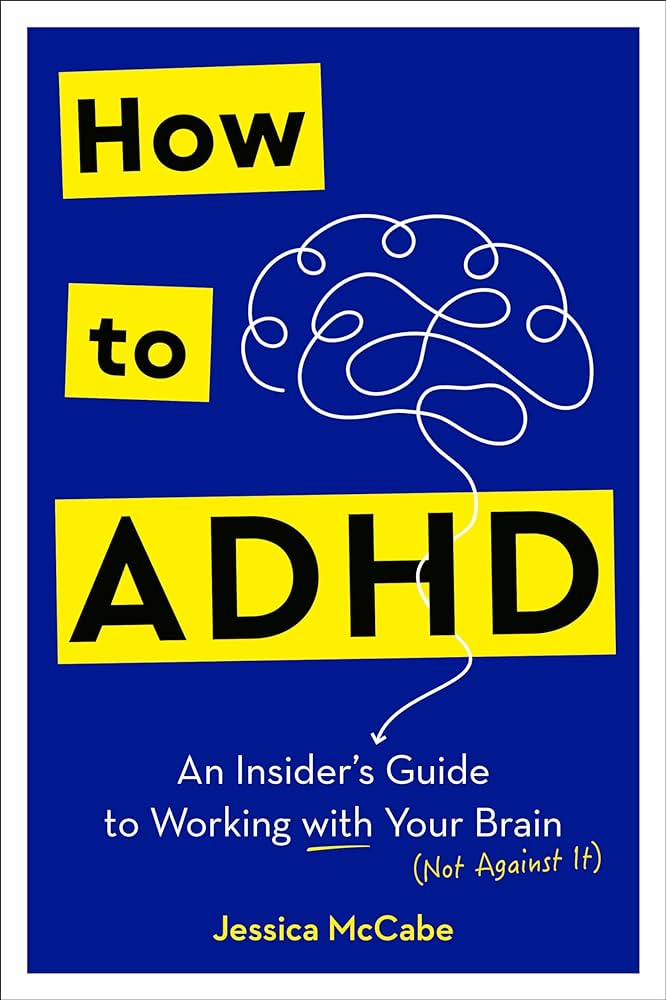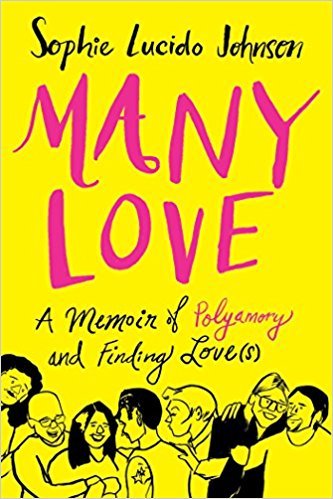Alanna commented on Alanna's review of Hood Feminism: Notes from the Women That a Movement Forgot
If you’ve ever struggled to understand what intersectional feminism actually is: this is essential reading. Whether you are new to learning about feminism, trying to untangle yourself from white feminism, or an old hand at feminist critique, I suspect that there will still be something for you here. In this book, Mikki Kendall balances her feminist critique with memoir to drive the stories home, with tangible personal examples. Her voice is uncompromising and invigorating. In her introduction she states: “I like not living up to the expectations of people who do not like me”, and I felt that in my bones.
The specificity of the examples are where the real magic of this book lies. Whether Kendall is discussing respectability politics, food or housing insecurity, sexual assault and domestic violence, eating disorders or any of the other intersections that make up a real radical feminism, she is candid and vulnerable. Particular high points for me were:
- Kendall’s examination of a soda tax as class warfare, and the way that paternalistic polices like this one assume that those living in poverty don’t understand how to manage their own lives.
- The exploration of the inconsistencies between our cultural narratives of “Strong victims” who fight back against sexual assault or domestic violence and the complete lack of (physical, emotional, legal, financial) support of the victims when they do fight back.
A core premise of this book, is that a feminism that doesn’t concern itself with ensuring that women’s survival basic needs are met will always be incomplete (at best). That being said, there are things Kendall herself overlooks, or avoids examining, most notably the intersection of her US military career with a wider critique of race/class, domestic violence, etc.
Where I struggled with the book: Kendall spends a not-insubstantial amount of this short punchy book focusing on electoral solutions and building a case for why the state should provide care (less time is spent on mutual aid solutions, or direct action). In a book that was otherwise quite radical, it felt like Kendall fell just short of recognizing and deconstructing why our state appropriates care and then fails to provide it, and why electoral solutions will not lead to radical change.
Nevertheless, I still absolutely recommend this book. Obviously, no small text like this one can cover everything, but it did start to open my mind to notice the things that I wasn’t noticing.
Alanna wrote a review...
If you’ve ever struggled to understand what intersectional feminism actually is: this is essential reading. Whether you are new to learning about feminism, trying to untangle yourself from white feminism, or an old hand at feminist critique, I suspect that there will still be something for you here. In this book, Mikki Kendall balances her feminist critique with memoir to drive the stories home, with tangible personal examples. Her voice is uncompromising and invigorating. In her introduction she states: “I like not living up to the expectations of people who do not like me”, and I felt that in my bones.
The specificity of the examples are where the real magic of this book lies. Whether Kendall is discussing respectability politics, food or housing insecurity, sexual assault and domestic violence, eating disorders or any of the other intersections that make up a real radical feminism, she is candid and vulnerable. Particular high points for me were:
- Kendall’s examination of a soda tax as class warfare, and the way that paternalistic polices like this one assume that those living in poverty don’t understand how to manage their own lives.
- The exploration of the inconsistencies between our cultural narratives of “Strong victims” who fight back against sexual assault or domestic violence and the complete lack of (physical, emotional, legal, financial) support of the victims when they do fight back.
A core premise of this book, is that a feminism that doesn’t concern itself with ensuring that women’s survival basic needs are met will always be incomplete (at best). That being said, there are things Kendall herself overlooks, or avoids examining, most notably the intersection of her US military career with a wider critique of race/class, domestic violence, etc.
Where I struggled with the book: Kendall spends a not-insubstantial amount of this short punchy book focusing on electoral solutions and building a case for why the state should provide care (less time is spent on mutual aid solutions, or direct action). In a book that was otherwise quite radical, it felt like Kendall fell just short of recognizing and deconstructing why our state appropriates care and then fails to provide it, and why electoral solutions will not lead to radical change.
Nevertheless, I still absolutely recommend this book. Obviously, no small text like this one can cover everything, but it did start to open my mind to notice the things that I wasn’t noticing.
Alanna is interested in reading...

By Any Means Necessary (Malcolm X Speeches & Writings)
Malcolm X
Alanna commented on aliyahmk's review of Everything Is Tuberculosis: The History and Persistence of Our Deadliest Infection
an arresting, informative, and deeply emotive read; john green’s everything is tuberculosis is a passionate and heart-driven look at how systemic racism, colonialism, capitalism, and individualism come together to uphold tuberculosis’ status as the world’s deadliest infection. listening to the audiobook, in particular, i was struck by the truth of green’s anger and sadness and care, and how evocatively this translated to accessible and digestible education. i only wish that it had also translated to a more direct call to action.
throughout the book, green cites his OCD is as a contributing factor to why he feels compelled to spend so much of his time talking and thinking about tuberculosis. as someone who understands this completely—and read this book for similar reason—i will not pretend that this book is an easy read, but i will note that perhaps if more of us made a habit of digging into the guts of our greatest fears, rather than turning our backs to them, the world would likely be a much, much better place.
in everything is tuberculosis, green digs into the guts of his fear of sickness, but doesn’t quite dig into the gut of his fear of systems. green is doing genuinely critical tuberculosis advocacy work, particularly in his direct action against johnson & johnson. this, of course, raises some questions: when the emotional knife of everything is tuberculosis is so razor sharp, why does green shy away from addressing what action would be required to dismantle the sort of monopolies that he understands are a leading cause in TB deaths globally? why is there no discussion—beyond abstraction—of dismantling and reforming a global healthcare system that serves profits over people? when we realise that the roots of ‘individual’ issues—whether we are discussing illness, crime, class, representation—are those same rotted institutions of oppression, we can only ‘fix’ these problems on a surface level. i know that it is terrifying that my country of origin and my bank account get to determine whether i live or die of a treatable illness, and green knows it too. he also knows that to tackle this, and to really dissect what this means, would be unpicking the loose thread that has fashioned our society.
still, what green does tackle in everything is tuberculosis, he does so with empathy and immense consideration. his interweaving of his own anecdotal experience with sickness tasteful in supporting his exploration of tuberculosis as an illness of oppression and inequity. the emotional thread that green hinges his storytelling on makes the more complex discussions around the infection itself more palatable, and thoroughly readable. where it doesn’t call for individual action, it does an exceptional job at activating individual hearts, and we can only hope that the latter might trigger the former regardless.
well-informed, impassioned, and full of spirit, john green’s everything is tuberculosis is a soul-stirring look at w present reality of tuberculosis that could have—and should have—been history. we must now all ask ourselves: how do we make it so?
Alanna made progress on...
Alanna commented on Alanna's update
Alanna is interested in reading...

Speak, Bird, Speak Again: Palestinian Arab Folktales
Ibrahim Muhawi
Alanna is interested in reading...

Speak, Bird, Speak Again: Palestinian Arab Folktales
Ibrahim Muhawi
Alanna commented on emilyspages's review of 1984
For all the hype I’ve heard about this book, it did not live up to expectations.
Personally, prior to reading this, I’d always felt slighted that this book was not included in my high school English literature curriculum. In fact, I did not get to experience any Orwell work as part of my education. Last December, I read Animal Farm and thoroughly enjoyed its commentary. I cannot say the same for 1984.
The world building is intriguing enough. I enjoyed the exploration of themes such as state surveillance, truth, and history. There are undoubtedly lessons to be learned from the text as it relates to these areas. The reason it fell short for me was because I really couldn’t get past the shortcomings of the main character.
For all this book has been talked about in larger culture, going into it, I had never once heard commentary on Winston’s misogyny. As a woman reading this book, it almost made me DNF. Misogyny usually goes hand in hand with power systems such as that exhibited by the Party, and while I do think Orwell could have made a potential commentary on misogyny as a tool of power systems, there doesn’t exist any actual commentary to provide a reasoning for the inclusion of such misogyny. Winston just is a misogynist, with zero further commentary. It made the reading experience wholly unenjoyable anytime I was reminded of his shortcomings.
Other than the issues related to misogyny, much of the other commentary also fell short for me. In comparing this work to Animal Farm, I thought the commentary there was much stronger, the imagery more compelling. In all honesty, I have to admit that I really don’t understand why this book is lauded in the way that it is.
Alanna commented on a post from the Pagebound Club forum
Today's random question
What is something about books or reading that you think is misunderstood? This can be a genre, reading as a hobby, how books are discussed, it can be anything.
For me, it's the idea that reading romance is all about the smut, especially queer. For a lot of the romance I read, I skim or skip the smut entirely (it makes me uncomfortable). The reason I read mm romance? The differences in the way men have to be written. I like my romance driven by emotion; I've found the genre that serves that for me.
Alanna commented on MegsMarginMusings's review of Who Moved My Cheese?
Alanna commented on Alanna's review of Hell Followed With Us
This book was good, but, for me, didn't stand up to the standard of the Spirit Bares its Teeth. Hell Followed with Us is a masterful exploration of religious trauma, body horror and the complexity of family dynamics both within found family or biological family. The world building felt detailed and interesting. Where it fell short for me was in the characterization. Aside from a few main characters, the wider world of characters felt flat and hard to differentiate, and even within the core cast of the book, I felt that the characters felt more like predictable tropes than fully-realized human beings.
Where the book was particularly good for me was in the way it navigated the complexity of its relationships around who we protect, and what that protection looks like. And its exploration of religiosity and mythmaking and the horrors committed in the name of righteousness.
I think the book is worth reading if you love a "if the world wants to see me as a monster, I will become monstrous" processing of queer rage and religious trauma. I'd also recommend this if you delight in truly grisly body horror. I'm not normally queasy in books and this one had me truly uncomfortable in a rather delightful way.
Alanna commented on Alanna's update
Alanna is interested in reading...

How to ADHD: An Insider's Guide to Working with Your Brain (Not Against It)
Jessica McCabe
Alanna is interested in reading...

How to ADHD: An Insider's Guide to Working with Your Brain (Not Against It)
Jessica McCabe
Alanna commented on perihelion's update
perihelion TBR'd a book

Strong Female Character
Fern Brady
Alanna commented on beezus's review of The Burning God (The Poppy War, #3)
i could write a long review about all the things i dislike about this book as a conclusion and the series at large, but i'm gonna save it for book club with my friend so we can both yell at each other and get it out of our systems. it's certainly not the best, but it's not the worst. kuang is a good writer imo, but this series is only a gem to me in the first book. this series as a whole is my least favorite review in the world: disappointing mid. my main take away? womp womp
Alanna commented on Alanna's update
Alanna is interested in reading...

The Secret World of Twilight: A Natural History of Dusk and Dawn
Sally Coulthard
Alanna is interested in reading...

The Secret World of Twilight: A Natural History of Dusk and Dawn
Sally Coulthard
























